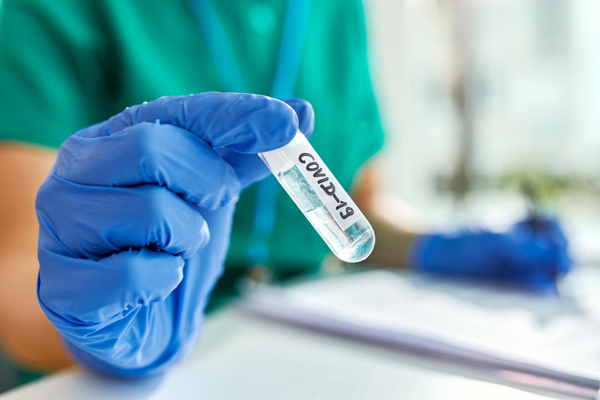
The PCR test, which stands for Polymerase Chain Reaction, became a widely discussed test due to the coronavirus pandemic. While it is often thought of as a test solely for diagnosing COVID-19, it is used in many other fields as well. In this article, we will explore what a PCR test is, what it is used for, how it is performed, and what to be aware of during the process.
What is a PCR Test?
A PCR test is an advanced and highly sensitive molecular diagnostic technique. It is considered advanced because it can detect even a small amount of microorganism present in a sample.
In the PCR process, the two strands of DNA are first exposed to high heat, causing them to separate into single strands. Then, synthetic oligonucleotides attach to the DNA and extend the strands. This cycle is repeated several times to amplify the DNA, making microorganisms more detectable.
Why is a PCR Test Done?
PCR tests are used in many research studies, diagnostic tests, and to determine the unknown properties of diseases. Some common reasons for using PCR tests include:
Diagnosis of the coronavirus affecting the world.
Identification of genetic diseases using gene amplification methods.
Detection of potential fetal abnormalities during pregnancy.
Forensic applications where DNA analysis can help identify criminals.
Cancer research, identifying mutations in genes that cause tumors.
Paternity testing.
Cloning and gene expression studies.
Detection of unknown DNA sequences.
Evolution studies.
Vaccine research.
Development of techniques to determine genetic relatedness in plants and animals.
How is a PCR Test Performed?
A PCR test is done by collecting a swab sample from the nose or throat using a long, cotton-tipped stick. The sample is placed in a special tube by a medical professional or health worker. The sample is then transferred to a test cartridge in a laboratory and undergoes several processes. The results are obtained after these procedures.
PCR Test for Coronavirus Diagnosis
COVID-19 diagnostic tests are divided into molecular and serological tests. These tests work by analyzing either the virus’s genetic material or its antigenic material. Tests that detect genetic material are known as molecular tests, while tests that detect antibodies are serological tests. The choice of test depends on the stage of the disease.
PCR tests are molecular tests, and they detect the genetic material of the coronavirus. To ensure accurate results, PCR tests should always be performed by a knowledgeable microbiologist or lab technician.
Things to Keep in Mind During Coronavirus PCR Testing
If the test result is negative, consider the possibility of improper application.
The quality of the sample is critical for accurate results.
As PCR tests work with RNA, the quality of the RNA sample is important for the test’s effectiveness.
Improper transfer of the sample may affect the results.
Technical errors, such as virus mutation or PCR test inhibition, should be taken into account during the test.
How is PCR Testing Applied for Coronavirus Diagnosis?
There are two main types of PCR tests for coronavirus diagnosis: real-time PCR tests and rapid-result PCR tests. Real-time PCR tests typically take 3 to 4 hours to yield results, while rapid tests can provide results within 1.5 hours. In Turkey, real-time PCR tests are used.
For coronavirus diagnosis, the sample is typically taken from the nose or throat. However, a throat sample is most effective for detecting the virus in the early stages. If the disease progresses without symptoms and the patient develops pneumonia, the virus will rapidly spread to the lungs. In such cases, sputum samples are more reliable for testing.
Once the samples are collected correctly, they are placed in a viral transport medium. This liquid allows the virus’s RNA to separate from the sample and dissolve into the solution. The RNA is then isolated and amplified for easier diagnosis. Laboratory tests on the amplified RNA determine the presence of the virus.
Where Can You Get a PCR Test?
PCR tests are performed in health institutions and laboratories approved by the Ministry of Health. These labs are authorized to carry out COVID-19 PCR tests.